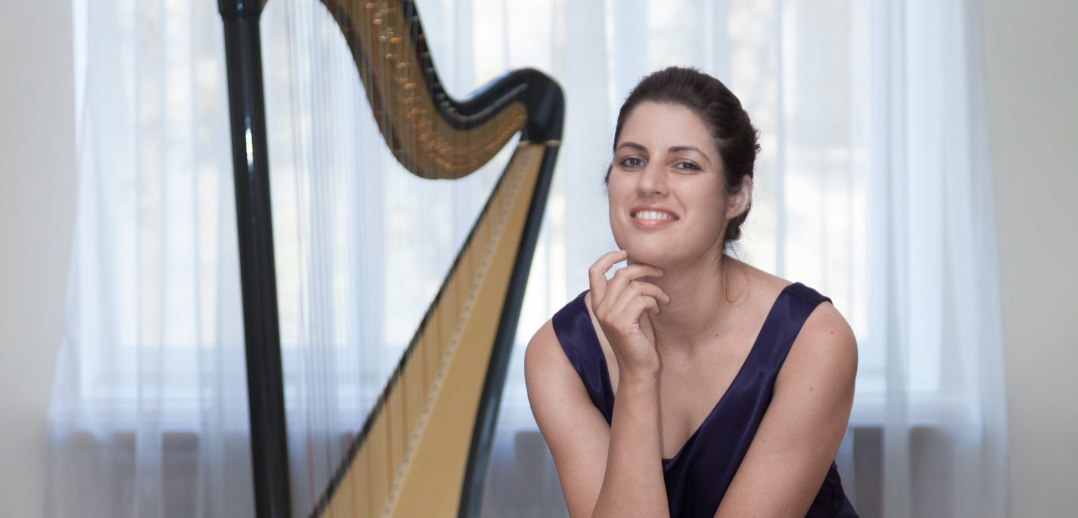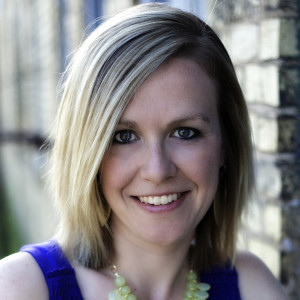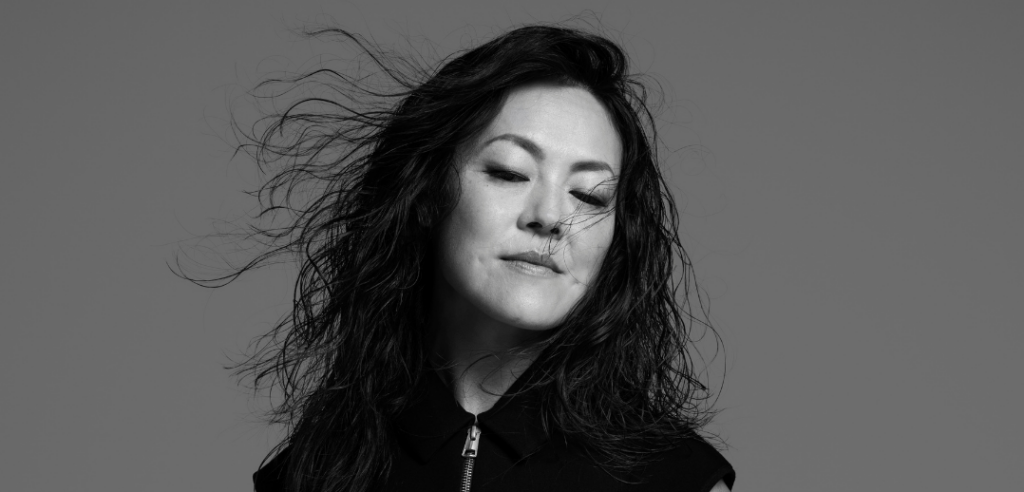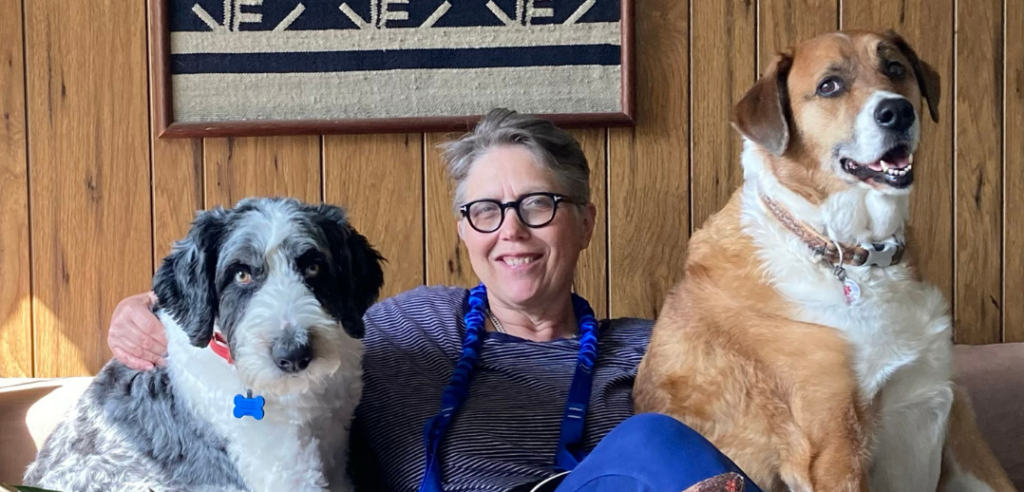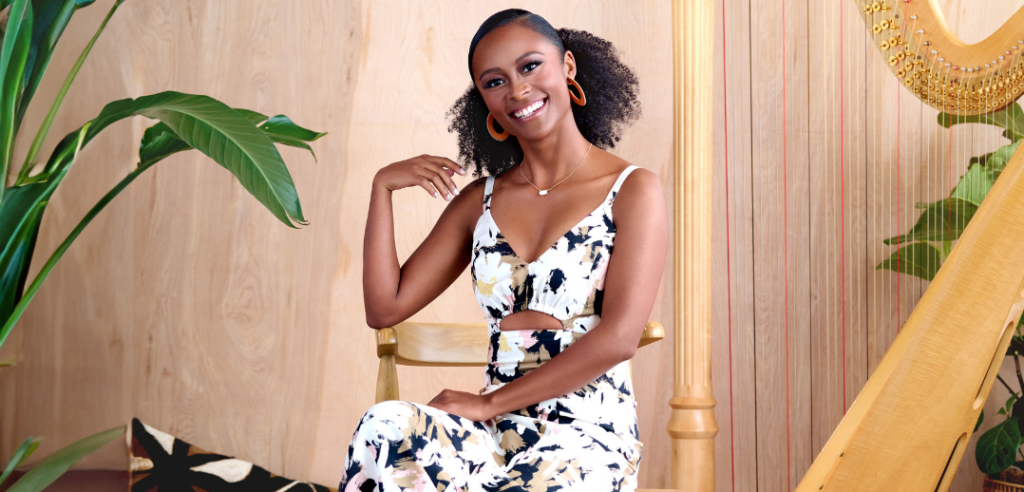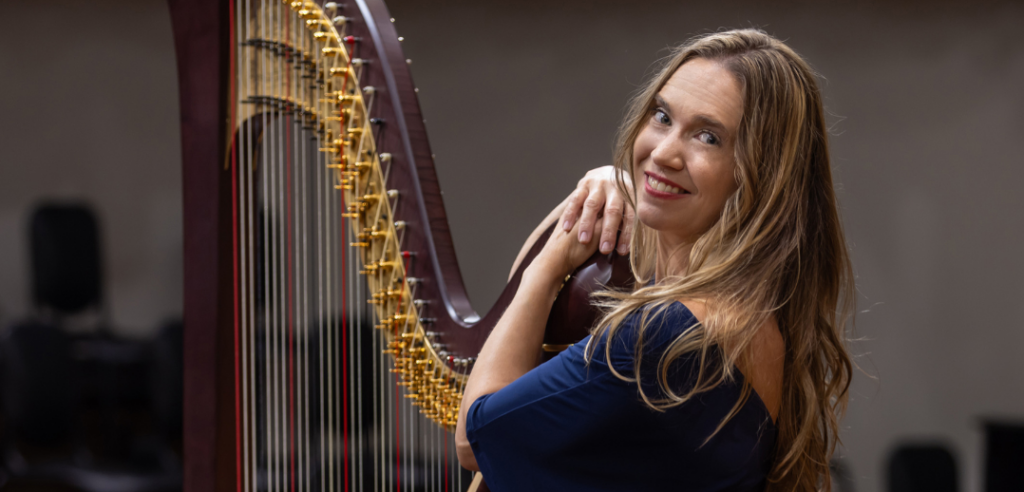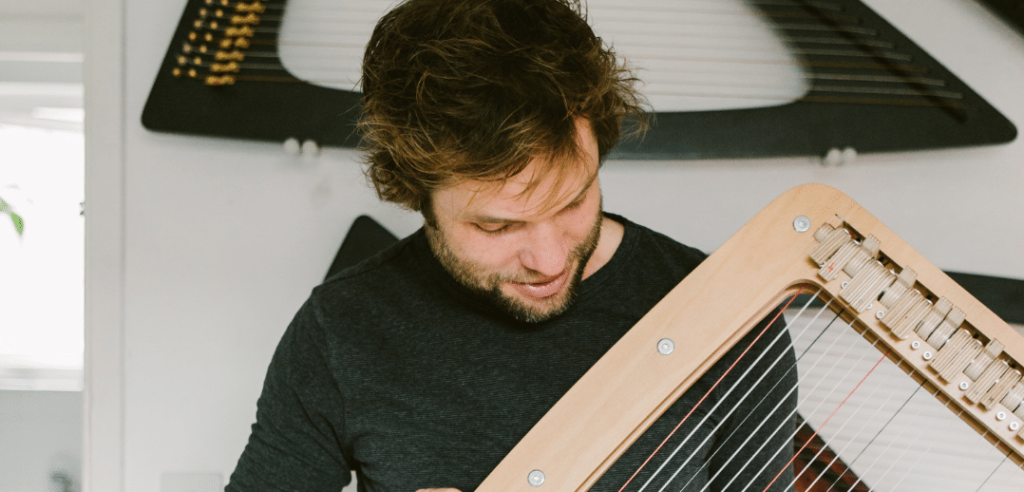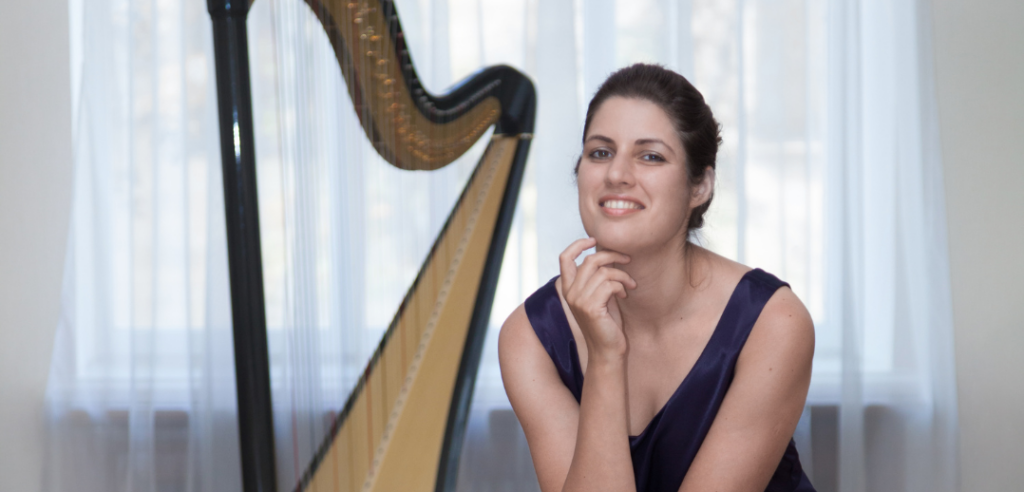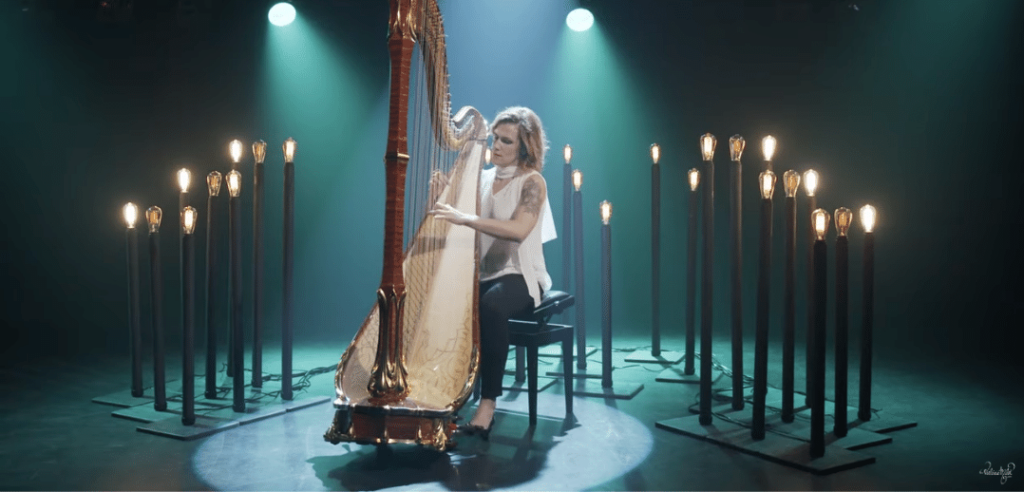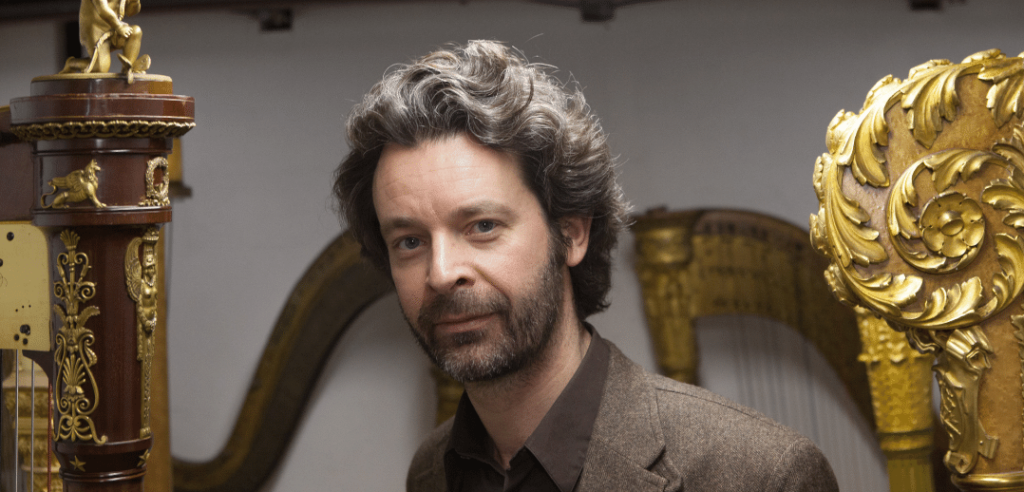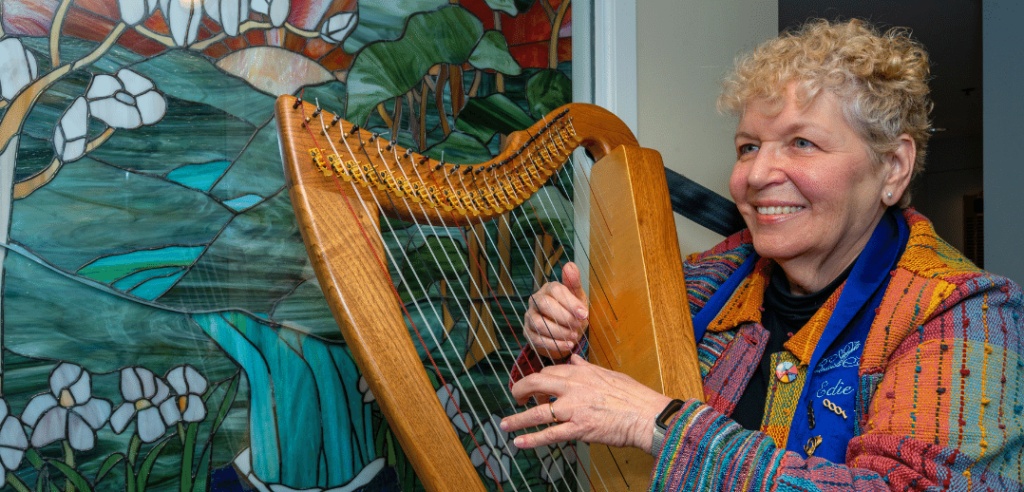
When Veronika Lemishenko and her former harp teacher Larisa Klevtzova started the Glowing Harp Festival and Competition in Kharkiv, Ukraine, nearly 10 years ago, they had big dreams. They wanted to bring the best harpists from all over the world to Ukraine to teach and perform, because so many Ukrainian harpists couldn’t afford to travel for these opportunities. What began as a small, regional event grew little by little over the last decade, drawing world-class musicians and establishing a top-notch competition showcasing both international students and the talented generation of young Ukrainian harpists. Like everything else, the competition had to be moved online during the pandemic, and as the world emerged from several years of remote events, Lemishenko was excited to hold Glowing Harp’s event in-person in Kharkiv in April of 2022. Sadly, the 2022 Glowing Harp Festival did not happen. The Russian invasion and subsequent war made it impossible. Lemishenko immediately shifted her efforts from festival planning to fundraising, starting a charity to help Ukrainian people—especially young harp students. She has spent the last year traveling from country to country—anywhere that will have her—to perform and raise money for Ukraine. As the war entered its second year earlier this spring, we caught up with Lemishenko on Zoom. Despite everything she has been through and her country has endured in the last year, Lemishenko remains hopeful and determined right down to the shirt she was wearing during our interview, which read, “everything will be Ukraine.”

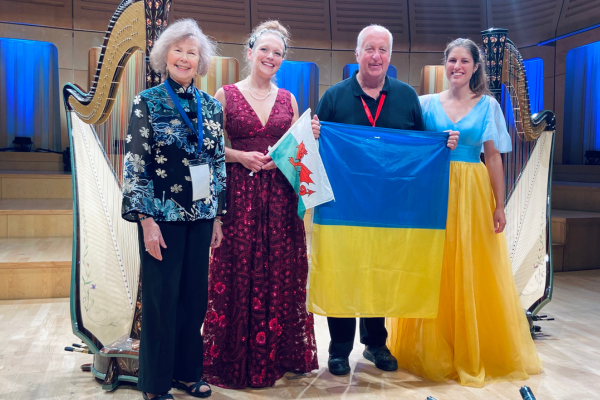


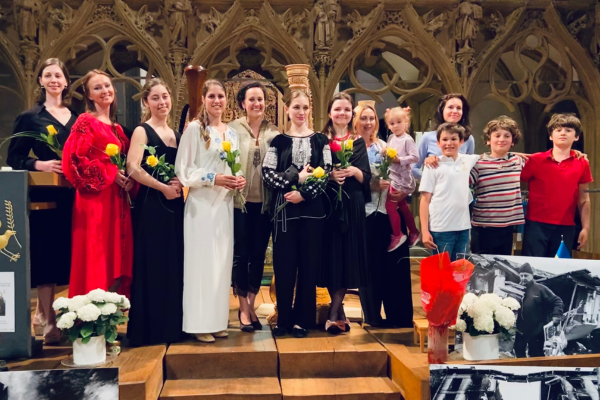
Harp Column: Glowing Harp is the harp project you started with another Ukrainian harpist in 2006 with your first competition. It has grown over the years to include a competition, festival, masterclasses, recitals, and other musical events. You and Larysa Klievtsova are still the directors of Glowing Harp. You had announced the lineup for your festival, which was scheduled for April 2022. We published news of your festival lineup on February 22, 2022, and three days later you had to postpone the festival because war had broken out. Tell us what that time was like for you.
…we hope that the war will be over soon, and Ukraine will again be free and peaceful, and we can welcome harpists here again.
Veronika Lemishenko: I didn’t believe until the last moment that there could be a war, and, of course, it was a huge shock. It became very clear very quickly what is important and what is not important. And also with the people, it became clear in one day who is on your side and who is not. So it was a difficult time, with very fast decisions and actions.
HC: Yes, a lot happened in a short period of time. You’ve recently announced that your Glowing Harp competition will return next year in 2024 as an online contest. Tell us about that decision to bring back the competition despite the ongoing war.
VL: Well, I think it’s important that we not give up what we were doing [before the war]. If it’s possible to keep going, despite the war, with things which are a big part of your life, then I think we should. Also I think it’s a good competition, a good festival, not only for us in Ukraine, but for other harpists. Since the war started, we have actually been able to do a lot of benefit events thanks to our Glowing Harp connections. We hosted the competition online back in 2020 because of the pandemic, so we have experience doing that. The idea is to help Ukraine, so for now, we really don’t want to move the competition to another country. We are considering a few options for the festival, but for the competition, we decided to do it online because, of course, we hope that the war will be over soon, and Ukraine will again be free and peaceful, and we can welcome harpists here again. So that’s why we decided to hold it online.
HC: You recently announced your jury for the competition, which is quite an international lineup.
VL: Yes, we already have a wonderful jury of five people, including two from Ukraine: Larysa Klievtsova, who is the co-founder of Glowing Harp with me, and another harpist Kateryna Muslienko. And then three international guests: Mélanie Laurent, who won [the 2019 USA International Harp Competition] in Bloomington, Claudia Lamanna, who won [the 2022 International Harp Contest in] Israel, and Parker Ramsay, also a really fantastic harpist and recording artist. So I’m really glad we have such a team for the next Glowing Harp, and I hope it will inspire a lot of harpists not only in Ukraine, but all over the world.

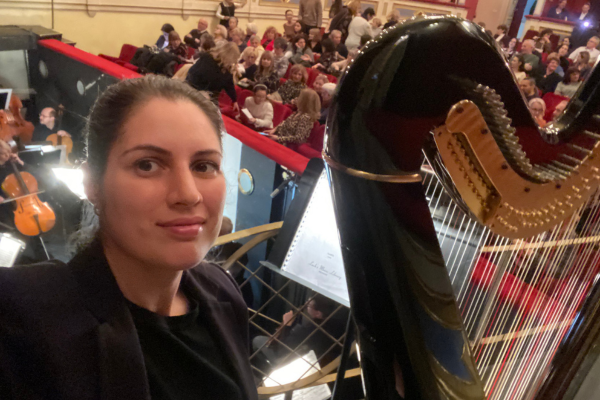


HC: That’s quite a jury that you have assembled already. You’ve spent a lot of time in the last year organizing and playing charity concerts and events to benefit Ukraine. Tell us about those efforts and what the response has been from the international community.
VL: It was actually an absolutely amazing response. When it started, I just wanted to do something, and as I’m a harpist, the best I can do is play the harp. The idea was to do benefit events. I had no idea how it would go or how many concerts there would be or where. So I started with a few friends and many, many people from all over Europe, the United States, Turkey, Asia, from everywhere all over the world were writing, asking what they can do, how they could help. A lot of musicians and really famous harpists contributed to the foundation. And a lot of harpists also invited me to come and play and stay because I didn’t have a harp and didn’t have a home. I didn’t have any idea how to draw an audience. But harpists in all these countries made those preparations in a very short period of time. We started in Turkey in March 2022 with a masterclass, and the first benefit concert was in Vienna in March together with Elisabeth Plank. And it started to grow from there. I had five recitals planned, and so I had a map [Laughs] because I was traveling by bus to make the travel costs less expensive. So I used the map to plan out where to go next so I wasn’t jumping around. I had a few points when it started, and kept building momentum as I went. Harpists everywhere kept saying, you can go and play here, you can come to my place, you can come to my academy or to my school.
So it was three months of very intense benefit concerts and festivals and masterclasses. Of course it was not easy, but I think it was really great. I had an opportunity to put my energy into this effort and actually be of some help for Ukraine. I’m really grateful to the harp community. It was absolutely amazing how everyone came together, willing to help. It was also an important moment for a lot of Ukrainian students because, of course, they were out of any education process. It’s bad enough to have your schooling interrupted if you are a musician, but when you are a harpist, you don’t even have your instrument with you.
HC: Right. What were you able to do to help some of those harp students?
VL: I can’t imagine how hard it is for them. When you are studying to be a professional and suddenly you don’t have an instrument, you don’t study, you don’t have anything. Thanks to many, many colleagues, 14 students found a new place to study. It’s absolutely amazing. I think it’s one of the biggest achievements from the harp perspective.
HC: So they’ve gone to other schools in other countries outside of Ukraine?
VL: Yes. Those 14 students from age 8 to 24 got a new place to continue their professional study in the Czech Republic, Poland, Germany, France, and Canada.
HC: That’s great, and it shows how much the international harp community wants to help—especially those young people.
VL: Yes. And for their parents, of course, it’s a great relief. They know their child is safe and is able to study at least somewhat normally.
HC: It sounds like the support has been quite strong for your efforts, but we just passed the one year mark of the start of the war. Do you worry about support decreasing as this war goes on or that the needs of the Ukrainian people will not be top of mind for people?
VL: Yes. Of course, that is one of the biggest fears. But I can’t say support has become less—Ukraine still has huge support, and we are really, really grateful for that.
HC: I imagine that Ukrainians think a lot about how different their lives were a year ago. Tell us a little bit about how your musical life has changed in the last year.
VL: I was working in a Russian orchestra in Yekaterinburg, Russia. When the war started, I quit and left the country. I didn’t think about what I would do in the long term. I wanted to do something to help my country, and it started with all these benefit events, and later I was extremely lucky to have an orchestra audition, and now I have a permanent job in Croatia with the Croatian National Theatre in Osijek. I realized much later that it’s actually great, great luck that I managed to find a job. Thanks to this job, I can also do a lot of charity things. If I didn’t have the orchestra job, I would be spending all my time looking for ways to make a living.
HC: When was that audition in Croatia? You couldn’t have had much time to prepare.
VL: The audition was in May 2022, and I started in June and that is where I am living now. I also have a part-time job in Kyiv with the National Orchestra of Ukraine—we have an agreement for touring. I’ll go to Kyiv in August, and I will be playing the Kyiv premier of the Ukrainian Fantasy for the Harp and Orchestra. As an orchestra member, I’m taking part in a big tour in autumn to European countries. And the next one will be in Great Britain in October and November.
HC: That’s very exciting. Who wrote the piece that you’re premiering?
VL: The Ukrainian Fantasy was written by Evgen Andreev, who is actually the composer in residence for Glowing Harp. He wrote the solo harp version for our competition in 2017. We have thought for quite a long time about making a version for harp and orchestra because it’s a really colorful piece, and I can hear the orchestration in my head. We discussed this with the composer and decided it would be great to have this small concerto.
HC: What a neat idea. So you will premier the piece in Kyiv in August?
VL: Yes.
HC: I know that harpists will be really interested to hear that. So you mentioned that when war broke out, you were playing in a Russian orchestra. How has the last year changed your professional relationships?
VL: Well, when the war started some people in the orchestra came to me and said they were really ashamed of what their country was doing. Some people didn’t say anything. And some people told me, well, you [Ukraine] should give up. So there were different responses. I can’t say, of course, that a hundred percent of Russians support the war, but still it’s a majority, unfortunately.
HC: I read in an interview that you did last summer where you said that you’re not a soldier, and so you can’t fight, which is why you keep playing music. This is what you can do as a musician is to keep playing music. How do you think music helps your country during this time?
VL: In our foundation we follow the saying, “Do what you can, when you can, with what you have.” So if you can contribute as a musician, as a builder, as any profession, you can be useful. A lot of people made socks for the winter, which was a big help. Also it’s amazing how fast, especially in Kharkiv where they were bombed every day, how fast all the reconstruction work has been done. It’s absolutely incredible. So I think everyone is trying to make an effort, and doing what they can do. I know a lot of people were volunteering, for example, making food and giving clothes. You can always help if you want.
HC: That’s a good perspective to have. Everybody can help. You are from Kharkiv, and that’s where you started musical studies. Do you still have family there?
VL: When the war started, my parents were still in Kharkiv. After one week they managed to evacuate to the west to Lviv. So for now they live in Lviv. Again, thanks to the harp network—there is a harpist in Lviv, and my parents live in her family’s house.
HC: The harp is still a wonderful connection.
VL: Yes, absolutely.
HC: What do you hope for in your personal musical life after this war is over?
VL: I would like to have other circumstances, but I would continue the same things I’m doing—playing in orchestras, playing recitals, teaching—I love all of it.
HC: You do a fair amount of chamber music. Have you been able to do that in the last year or is that something that you’ve had to put on hold?
VL: Well, of course there’s been much less chamber music, but we’ve done some. We actually premiered a brilliant piece, again from [composer] Evgen Andreev. He wrote a brilliant, wonderful piece in minimalist style for harp, violin, and cello. And we did a lot of harp duos, because after a few months it was possible to involve those harpists who started to study abroad. We started to involve girls for the benefit events, and of course harp duos. We also printed a few scores for those duos that are available at Vanderbilt Music’s website. Of course with Glowing Harp, we have always promoted Ukrainian music, but now it’s even more important to play and promote this music.
HC: We talked about this earlier, but you have a charity that you set up specifically for people to donate to benefit Ukraine, whether it’s through a concert or just financial contribution. Can you tell our readers how they can support your charity if they would like to?
VL: Yes, of course. It’s easy to find on the main page of the Glowing Harp website (glowingharp-ukraine.com). There is a button which leads you to the foundation. So we publish everything we are doing. It’s very open. I am grateful for all contributions. •






